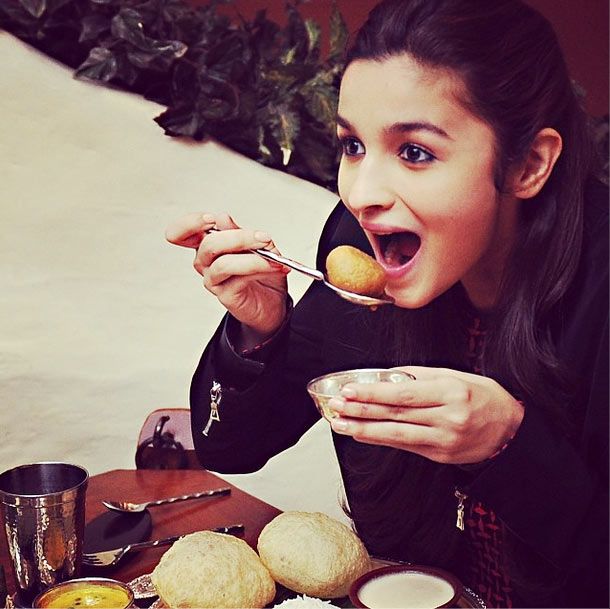It is difficult to resist temptation with all the food around you. But these tips will help you enjoy a guilt-free Diwali.

The last three to four months of the year are replete with festivals in India.
Festivals such as Dussehra and Diwali are known for joyous celebrations, often with choice delicacies.
People with pre-existing health conditions and those looking to lose weight might find it stressful to enjoy the celebrations out of fear that their diet regimens can go awry as it is difficult to resist temptation with all the food around them.
This is also a time during which respiratory conditions and gastrointestinal disorders peak, affecting people who are otherwise healthy.
Dr Ramananda Srikantiah Nadig, Head of the Clinical Advisory Board, healthi provides some tips to enjoy the festive season while also taking care of your health.
The problems
People living with certain pre-existing conditions are at the maximum risk during festivals.
Extra care must be taken by those suffering from diabetes, hypertension and cardiovascular diseases.
Overeating can cause blood sugar levels in a person living with diabetes to shoot up.
Savory and salt-rich snacks might cause spikes in blood pressure among those with hypertension.
Fried and other oily snacks can cause spikes in cholesterol levels and prove detrimental for those with heart conditions.
Other common problems during festivals include acid reflux and the resultant burning sensation in the chest, indigestion and bloating.
Pollution levels often shoot up and pave way for a sudden attack in those with asthma.
The solution
Remember that the only way to thoroughly enjoy the festivities is to stay healthy and disease free.
While festive snacks and sweets may be a treat to the palate, it is imperative to exercise caution and not overdo anything.
Binge eating can also lead to weight gain and resultant problems.
Considering all these factors, the best way out is to eat smart, snack healthy, remain physically active and work around schedules to manage any pre-existing conditions or prevent the onset of others.
Here are some tips for preventive health during this season.
Moderation is the key!
Eat what you want but in limited quantity.
It all boils down to how and how much you eat.
Traditional festival sweets and savories are loaded with calories.
They key is to eat in moderation and make the correct food choices.
While it is okay to consume these savories, limit your servings to one portion or one piece.
Take a small bite of sweets that are offered rather than consuming the entire thing.
Similarly, consume papads, chutneys, salty snacks, and other namkeens in limited qualities as all of these contain excessive amounts of salt.
Since you will likely be eating through the day, it is a good idea to eat smaller portions of the main meals.
If possible, balance out with soups and salads and give carbs a miss during the main meals.
While moderation is generally a good idea for others, those with pre-existing health conditions should not skip their diet regimen and medication during this time.
Modify how you consume snacks
Deep fried foods contain empty calories and yield zero benefits other than a momentary sense of taste.
It is better to go for roasted or shallow-fried snacks.
Snacks can also be made using high-fibre flour, finger millet or bajra, ragi or soya along with wheat flour and seasoned with herbs and spices instead of salt.
Additionally, it is also a good idea to add green leafy vegetables such as methi (fenugreek), spinach, coriander or mint to these snacks.
Cook at home
Make your own sweets and snacks rather than buying from the market.
This way, it will be possible to control the amount of sugar and salt, and use healthier alternatives.
Replace whole milk with a lighter version.
Minimise the use of ghee and butter.
Instead, it is a good idea to use flavor enhancers such as saffron, cardamom, and rose water for taste.
Think of recipes that require less of added fat and more of healthy fats. You can also opt for munchies that use nuts and dried fruits.
If you plan on eating out or visiting friends and family, a simple way to avoid overindulgence is to eat something healthy at home before going out.
Keep yourself hydrated
This is particularly important for those living with diabetes or other conditions.
Drink plenty of water through the day as it can alleviate false hunger.
About 10 to 15 glasses of water every day can work up all that extra oil that you consume.
It will also keep you hydrated and the skin supple.
Eat a full breakfast
Consume a breakfast that is healthy and high on protein.
Do not forget to include plenty of fresh fruits and vegetables as they contain a lot of fibre.
This will ensure that you stay full for most part of the day.
If you have had one heavy meal, you could ensure that the next one consists of soups and salads or fruits and juice.
Snack on nuts as this will prevent you from unnecessary snacking.
Remain physically active
Ensure that you continue with physical activity as on other days.
Try to take a small walk after a heavy meal.
Walk to the nearby shop or market instead of taking the car.
Look for ways to keep yourself active and avoid prolonged sitting.
Exercise will ensure that you stay light and active during the festivals too.
Stay away from crackers and smoke
Respiratory ailments see a rise during this time of the year.
These include allergies, asthma and pollution.
Those with asthma should avoid bursting firecrackers, more so the ones that emit smoke.
It is also a good idea to keep your inhaler and medication nearby during this season.
If possible, enjoy the fireworks from afar.
Avoid binge drinking
Late night parties and celebrations with friends do not mean you should binge on alcohol.
Those with liver-related ailments should be particularly careful.
'Treat yourself during the festivals but do not allow the season to be an excuse for excess.
Taking some common sense preventive measures like those listed above, ensures that the remnants of the festive season are not illnesses, but fond memories.
Photograph: Kind courtesy Alia Bhatt/Instagram










